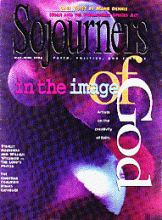Rock music is less than 50 years old; Christianity is almost 2,000. And yet the two have been intimately connected since rock's inception, often with mutual misunderstanding and co-destructive results. The desire for redemption is, to coin a phrase, as old as sin. Steve Turner's Hungry for Heaven attempts an understanding of the links between faith and rock in the light of humankind's longing for salvation.
Originally a 12-part radio-show broadcast in 1980, the first incarnation of Hungry for Heaven appeared in 1988. Revised to include more up-to-date material generally, brand new material on rap and techno, and a completely revamped 11-page chapter on U2, the book was re-released in 1995.
A widely published rock critic, Turner's credentials are impressive. He is the author of several books including Conversations With Eric Clapton, U2: Rattle and Hum, Van Morrison: Too Late to Stop Now, and A Hard Day's Write: The Stories Behind Every Beatles Song. Though obviously more comfortable with that which he knows (largely standard stadium-fodder and bland baby-boomer rock), the depth of Turner's knowledge is remarkable, as is the sensitivity of his spot-on analysis.
The text is peppered with choice quotations culled from his back catalog of interviews, and, when playing to his strengths, the results are brilliant. The rush and thrill of pop music is most evident, the ties to the spiritual are most appropriately drawn, and the "search for redemption" is most visceral and relevant in the historical chapters.
Turner's grasp of '50s music is constantly underpinned with fascinating nuggets: For example, Mahalia Jackson's songwriter was the preacher at one of several churches that the young, gospel-obsessive Elvis attended.
Read the Full Article
